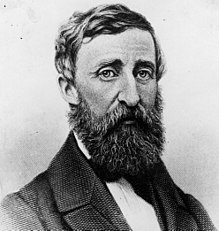
Ralph Waldo Emerson, who went by his middle name Waldo, was an American essayist, lecturer, philosopher, abolitionist, and poet who led the Transcendentalist movement of the mid-19th century. He was seen as a champion of individualism and critical thinking, as well as a prescient critic of the countervailing pressures of society and conformity. Friedrich Nietzsche thought he was "the most gifted of the Americans", and Walt Whitman called him his "master".
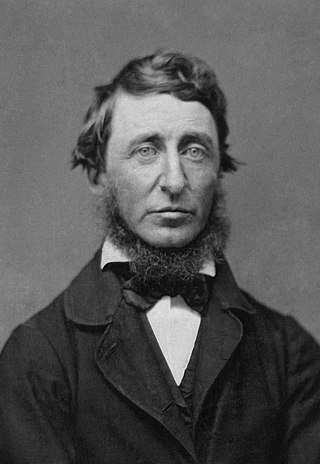
Henry David Thoreau was an American naturalist, essayist, poet, and philosopher. A leading transcendentalist, he is best known for his book Walden, a reflection upon simple living in natural surroundings, and his essay "Civil Disobedience", an argument in favor of citizen disobedience against an unjust state.
Transcendentalism is a philosophical, spiritual, and literary movement that developed in the late 1820s and 1830s in the New England region of the United States. A core belief is in the inherent goodness of people and nature, and while society and its institutions have corrupted the purity of the individual, people are at their best when truly "self-reliant" and independent. Transcendentalists saw divine experience inherent in the everyday, rather than believing in a distant heaven. Transcendentalists saw physical and spiritual phenomena as part of dynamic processes rather than discrete entities.
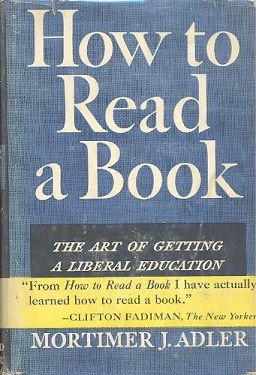
How to Read a Book is a book by the American philosopher Mortimer J. Adler. Originally published in 1940, it was heavily revised for a 1972 edition, co-authored by Adler with editor Charles Van Doren. The 1972 revision gives guidelines for critically reading good and great books of any tradition. In addition, it deals with genres, as well as inspectional and syntopical reading.

Walden is a book by American transcendentalist writer Henry David Thoreau. The text is a reflection upon the author's simple living in natural surroundings. The work is part personal declaration of independence, social experiment, voyage of spiritual discovery, satire, and—to some degree—a manual for self-reliance.
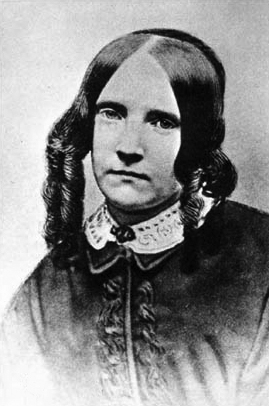
Susan Augusta Fenimore Cooper was an American writer and amateur naturalist. She founded an orphanage in Cooperstown, New York and made it a successful charity. The daughter of writer James Fenimore Cooper, she served as his secretary and amanuensis late in his life.
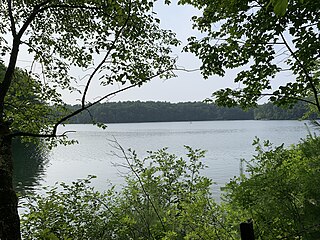
Walden Pond is a celebrated pond in Concord, Massachusetts, in the United States. A good example of a kettle hole, it was formed by retreating glaciers 10,000–12,000 years ago. The pond is protected as part of Walden Pond State Reservation, a 335-acre (136 ha) state park and recreation site managed by the Massachusetts Department of Conservation and Recreation. The reservation was designated a National Historic Landmark in 1962 for its association with the writer Henry David Thoreau (1817–1862), whose two years living in a cabin on its shore provided the foundation for his famous 1854 work, Walden; or, Life in the Woods. The National Historic Preservation Act of 1966 ensured federal support for the preservation of the pond.
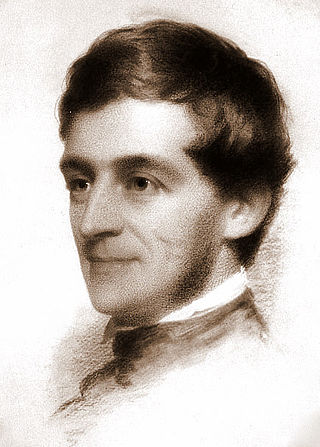
Nature is a book-length essay written by Ralph Waldo Emerson, published by James Munroe and Company in 1836. In the essay Emerson put forth the foundation of transcendentalism, a belief system that espouses a non-traditional appreciation of nature. Transcendentalism suggests that the divine, or God, suffuses nature, and suggests that reality can be understood by studying nature. Emerson's visit to the Muséum National d'Histoire Naturelle in Paris inspired a set of lectures he later delivered in Boston which were then published.
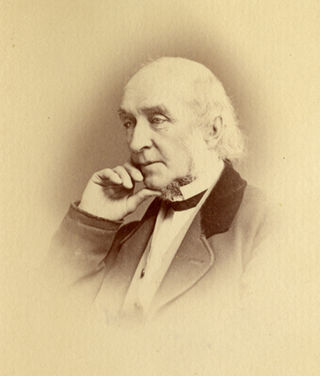
William Ellery Channing II was an American Transcendentalist poet, nephew and namesake of the Unitarian preacher Dr. William Ellery Channing. His uncle was usually known as "Dr. Channing", while the nephew was commonly called "Ellery Channing", in print. The younger Ellery Channing was thought brilliant but undisciplined by many of his contemporaries. Amos Bronson Alcott famously said of him in 1871, "Whim, thy name is Channing." Nevertheless, the Transcendentalists thought his poetry among the best of their group's literary products.
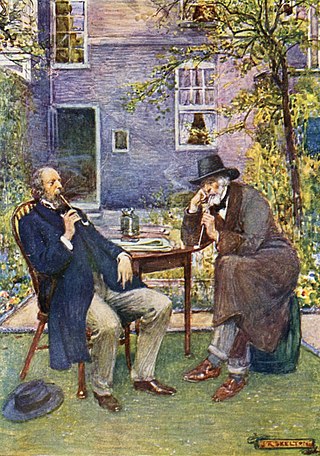
Victorian literature is English literature during the reign of Queen Victoria (1837–1901). The 19th century is considered by some to be the Golden Age of English Literature, especially for British novels. It was in the Victorian era that the novel became the leading literary genre in English. English writing from this era reflects the major transformations in most aspects of English life, from scientific, economic, and technological advances to changes in class structures and the role of religion in society. The number of new novels published each year increased from 100 at the start of the period to 1000 by the end of it. Famous novelists from this period include Charles Dickens, William Makepeace Thackeray, the three Brontë sisters, Elizabeth Gaskell, George Eliot, Thomas Hardy, and Rudyard Kipling.

Founded in 1941, the Thoreau Society is the oldest and largest organization dedicated to an American author. It is based in Concord, Massachusetts, United States, at the house where Henry David Thoreau was born in 1817. With members from all 50 states and countries around the world, the Society disseminates knowledge about Thoreau by collecting books, manuscripts, and artifacts relating to Thoreau and his contemporaries, by encouraging the use of its extensive collections, and by publishing two periodicals, the Thoreau Society Bulletin and the Concord Saunterer.
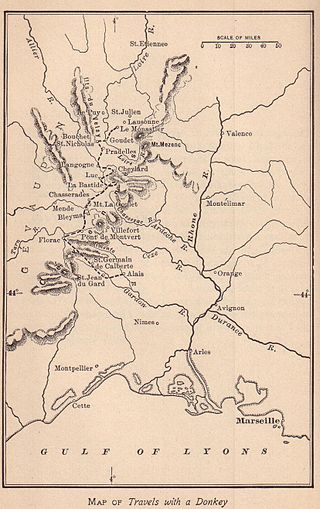
Outdoor literature is a literature genre about or involving the outdoors. Outdoor literature encompasses several different subgenres including exploration literature, adventure literature, mountain literature and nature writing. Another subgenre is the guide book, an early example of which was Thomas West's guide to the Lake District published in 1778. The genres can include activities such as exploration, survival, sailing, hiking, mountaineering, whitewater boating, geocaching or kayaking, or writing about nature and the environment. Travel literature is similar to outdoor literature but differs in that it does not always deal with the out-of-doors, but there is a considerable overlap between these genres, in particular with regard to long journeys.

Henry Mills Alden was an American author and editor of Harper's Magazine for fifty years—from 1869 until 1919.
Walter Harding (1917–1996) was a distinguished professor of English at the State University of New York at Geneseo and internationally recognized scholar of the life and work of Henry David Thoreau. Harding was born in Bridgewater, Massachusetts, and received his B.S. from Bridgewater State College in 1939, M.A. from the University of North Carolina in 1947 and a Ph. D. from Rutgers University in 1950.

Pilgrim at Tinker Creek is a 1974 nonfiction narrative book by American author Annie Dillard. Told from a first-person point of view, the book details Dillard's explorations near her home, and various contemplations on nature and life. The title refers to Tinker Creek, which is outside Roanoke in Virginia's Blue Ridge Mountains. Dillard began Pilgrim in the spring of 1973, using her personal journals as inspiration. Separated into four sections that signify each of the seasons, the narrative takes place over the period of one year.
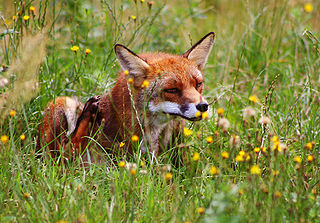
Wildness, in its literal sense, is the quality of being wild or untamed. Beyond this, it has been defined as a quality produced in nature and that which is not domesticated. More recently, it has been defined as "a quality of interactive processing between organism and nature where the realities of base natures are met, allowing the construction of durable systems" and "the autonomous ecological influences of nonhuman organisms."

"Life Without Principle" is an essay by Henry David Thoreau that offers his program for a righteous livelihood. It was published in 1863, a few months after his death.
John Tallmadge is an American author and essayist on issues related to nature and culture. He is in private practice as an educational and literary consultant after a career in higher education, most recently as a core professor of Literature and Environmental Studies at Union Institute and University in Cincinnati, Ohio. He served as president of the Association for the Study of Literature and Environment (ASLE) and director of the Orion Society. He is a U.S. Army veteran.
Elizabeth Hall Witherell is a literary historian and scholarly editor. Since 1980, she has been the editor-in-chief of The Writings of Henry D. Thoreau, a project founded in 1966 that aims to provide, for the first time, accurate and complete texts of the published works, the Journal, and the correspondence of the 19th century American scientific naturalist, transcendalist, and writer Henry David Thoreau (1817-1862). Witherell served as President of the Association for Documentary Editing from 1992 to 1993 and as President of the Thoreau Society from 1996 to 2000.

Richard Smith is a public historian and writer known for his writings on New England history and for his living history interpretations of Henry David Thoreau.
